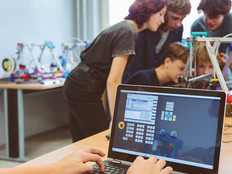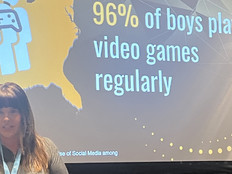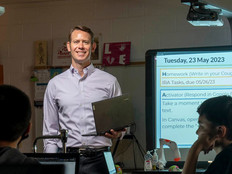K–12 Educators Embrace Ingenuity and Adaptation to Prepare Students for the Future
Figuring out the best way to prepare the next generation of students often feels like aiming at a moving target.
The evolution of society and technology places tremendous demands on K–12 leaders, and yet this same challenge can yield immense satisfaction. We are helping students navigate a world even as it develops and unfolds, almost in front of our eyes.
The World Economic Forum predicts, for example, major disruptions in the world of work. The extent of change that we’ll see from robotics, artificial intelligence and the like is both incredible and unsettling. It’s also close to home for educators, who are tasked with preparing the next generation of professionals.
CoSN leaders recognized the significance of this dynamic in this year’s conference theme, “Envision 2030,” a nod to the fact that the Class of 2030 is just starting their educational journey. How do we set them up for success in a world that we ourselves can only begin to imagine?
A New World of Work Will Value Problem-Solving and Innovation
In this issue, we feature schools that embrace adaptation and flex creative muscle to prepare students for whatever the future may hold. Some deliver hands-on experience in areas such as robotics and coding. Others deploy monitoring tools to give students access to the latest digital resources, while also keeping them safe.
All such initiatives require the right IT infrastructure to support them. And, in most cases, leaders are figuring out how to do more with less — using ingenuity, partnerships and persistence to give students the modern learning experiences they deserve.
One interesting finding from the WEF’s “The Future of Jobs Report 2018” is that future workers may put a premium on different skills. On the decline, experts say, are proficiency in memorization, resource management and — though I’m sure teachers would disagree — the classics of reading, writing and math.
Gaining in value are analytical thinking, innovation, problem-solving and the ability to learn. These shifts aren’t surprising, but they do require us to rethink pedagogical objectives and strategies.
This is a task that never ends, nor should we expect it to, because the best educators are always adjusting — ensuring that while the target may move, their aim stays true.








